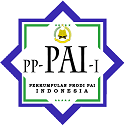PROBLEMATIKA PENDIDIKAN AGAMA ISLAM DI LEMBAGA PENDIDIKAN DAN PENGEMBANGAN PROFESI INDONESIA (LP3I) BUSINESS COLLEGE MALANG
Abstract
Abstract: The needs of Islamic education in universities is very high, meaning that students are very important for religious education is provided mainly in the field of belief and morals. The Lecturer of Islamic religion in LP3I-Business College e Unfortunate problem encountered is a lot to know about the science of business science and the world of work to mengkolaborasi with Islamic religious education courses (PAI). Lecturer of Islam that teaches Islamic education (PAI) in LP3I-Business College to take steps in teaching PAI, namely: 1. Choose the mosque as a place of teaching and learning from on set in the classroom as the other courses. 2. Require the student to establish the prayer dhuha and recite the Qur'an (verses) before the course begins. 3. Divide the group class discussion in accordance with the material PAI (Islamic education) in LP3I Business College syllabus hapless then presented by the method of discussion in order to make students more easily understand the religious values of Islam especially problem beliefs and morals. 4. Hold the oral exam (reading Quran) and the practice of the prayer at the end of the meeting, in addition there are middle test and final test, the goal to be more intensive.
Key Words: Islamic Education, LP3I, Business College
Full Text:
PDFReferences
‘Abdal ‘Ati, Hammudah, (1976). Islam In Focus. Indianapolis; American Trust Publication.
‘Abdul Karīm Al-Khāṭib, (1976). As-Siyāsah Al-Maliyyah fi Al-Islām wa ṣilatuhu bi al-Mu’amalāt al-Mu’āṣirah. Cairo; Dār al-Fikr al-‘Arabi.
‘Alī, ‘Abdullah Yūsuf, (1968). The Holy Qur’an: Text.Translation and Commentary, Beirut; Dār At Tibā’ah wa Al Nashr wa At Tawzī.
Abī ‘Abd Allah Muḥammad bin Ismā’īl bin Ibrāhīm Ibn Al-Mughīrah bin Bardazabah Al-Bukhārī Al-Ja’fī, (2011). Al-Adāb al-Mufrad”, Lebanon: Dār al-Kutub Al-Ilmiyah.
Adiwarman A.Karim, (2011). Ekonomi Mikro Islam. Jakarta; PT.Raja Grafindo Persada.
Al-Qardlawi, Yusuf, (1997). Daur al Qiyaam wa al Akhlaaq fii al Iqtishaadi al Islaami. Cairo: Maktabah Wahbah.
At-Thahawi, Ibrahim, (1974). Al-Iqtishad Al-Islami. V.1. Cairo: Majma’ Al-Buhuts Al-Islamiyyah.
Babilli, Mahmud Muhammad, (1975). Al-Maal fii Al-Islaam, Beirut; Daar Al-Kitab Al Lubnani.
Babilli, Mahmud Muhammad, (1975). Al-Maal fii Al-Islaam, Beirut; Daar Al-Kitab Al Lubnani.
Hussain, Muzaffar, (1974). Motivation for Ekonomic Achievement In Islam, Lahore, All Pakistan Islamic Education Conggres.
Ilfi Nur Diana, (2011). Hadits-hadits Ekonomi. Malang; UIN Maliki Press.
Maududi, Sayyid Abu Al-A’la, (1969). Mu’asyiyat Islam, Lahore; Islamic Publication.
Muhajir, Ali Musa Razi, (1974). Islam in Practical Life, Lahore; Sh. Muhammad Ashraf
DOI: https://doi.org/10.18860/jpai.v4i2.5426
Refbacks
- There are currently no refbacks.
Copyright (c) 2018 J-PAI: Jurnal Pendidikan Agama Islam
...............................................................................................................................................................
Editorial Office:
Fakultas Ilmu Tarbiyah dan Keguruan
Universitas Islam Negeri Maulana Malik Ibrahim Malang
Jalan Gajayana 50 Malang, Jawa Timur, Indonesia 65144
Phone (0341) 552398, Faximile (0341) 552398
E-mail: jpai@uin-malang.ac.id
...............................................................................................................................................................

J-PAI: Jurnal Pendidikan Agama Islam is licensed under a CC BY-SA 4.0.
...............................................................................................................................................................
Indexed by:

















